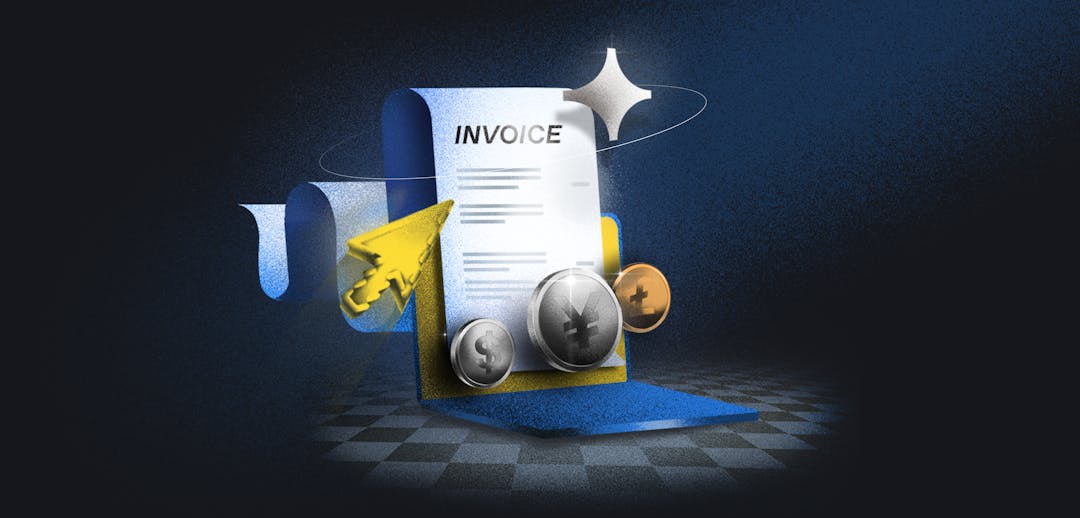AI SaaS scales rapidly from day one. From handling global payments to ensuring sales tax compliance, here are our five ways building strong operations in the back office can help AI companies prepare for hyper-growth.
Demand for AI SaaS products has exploded this year. ChatGPT hit 100 million global monthly users two months after launch. Even smaller AI companies, such as India-based Vidyo.ai, reached 200,000 monthly users in over 200 countries in under seven months. While this rocket-fuelled demand may seem great for nascent AI SaaS companies, it also brings labor-intensive operational challenges that stretch lean teams’ capacity and skills, weighing down growth soon after take-off.
“No matter how smart your AI tool, you won't be able to scale your company to its full potential without the right growth strategies and infrastructure in place.”
- Christian Owens, Founder, Paddle
From handling payments infrastructure to localizing international sales, here are our five ways that building solid back office operations can help AI companies prepare for rapid scale and future-proof that growth.
#1 Handling payments and billing
With an influx of customers - from countries that you’re not even targeting - you’ll experience a host of payment-related complications. For instance, when little-known companies have lots of paying customers in different banking jurisdictions, payment decline rates sky-rocket, leading to high levels of involuntary churn.
AI start-ups don’t have the resources to chase banks or set up local banking entities to prevent this, so need to have the right billing model from the start.
Choosing the right billing model depends on your product, but needs to handle flexible subscriptions at a bare minimum. Given AI’s unique growth, you also want to look for billing software with high revenue recovery rates that support multiple currencies, offer a range of pricing models and provide metrics on your growth.
Some companies attempt to build their own billing infrastructure or piece together a fragmented payments stack, but with AI SaaS’ needs, you can’t simply build a checkout and plug in a payment processor.
You need to integrate multiple payment gateways and methods, create subscription models and billing logic, and log key data and tax rates. It’s essentially building a new product (at a time when your own product needs your team’s full attention), so buying pre-built all-in-one billing infrastructure is the way to go.
#2 Selling internationally through localization
AI products receive worldwide attention earlier than regular SaaS companies; they need to prepare for the global spotlight by localizing their payments, pricing and product.
From launch, your checkout needs to sell in multiple currencies to boost payment acceptance and minimize foreign exchange (FX) fees. It also needs to accept a range of local payment methods (i.e. different credit cards and digital wallets) and convert your pricing compared to different countries’ willingness-to-pay.
But, first of all, you need to localize your product. From setting up your software in multiple languages to tweaking the product for local nuances (i.e. date, time and grammar preferences), catering for thousands of international customers can be overwhelming, but outsourcing localization can remove the boundaries.
#3 Ensuring global tax compliance
Riding the wave of rapid growth can be fun, but dealing with a wave of tax compliance issues is never fun. Every country you sell in has different sales tax rules, regulations and processes, which are constantly changing and require you to be compliant from your first user. For a lean team trying to focus on product development, getting to grips with global sales tax compliance is a stratospheric task.
To avoid getting knocked off course, early-stage AI companies should consider operational support that fully removes their compliance issues. It pays to go further than purely using a tax calculator that simply works out what rates to pay and leaves it to you to actually pay them. Using a merchant of record like Paddle to handle all payments and assume compliance responsibilities will not only rid you of short-term tax concerns, but also future-proof your long-term growth.
As a small business and as a technology company, we'd like to stay lean and we'd like to stay focused on what our core value proposition is, and not get lost in the legal mumbo jumbo of dealing with taxes and compliance. That's not the best use of our time and resources. Once we wrapped our head around the entire concept of having a merchant record, it made complete sense to switch over to one."
Vedant Maheshwari, CEO and Co-Founder, vidyo.ai
#4 Focusing on product development
“The goal for startups is to nail their product-market fit, then scale it. Premature scaling can lead to wasted spending and a leaky bucket of new customers at an unacceptably high risk of churn.”
- Kyle Poyar, Operating Partner at OpenView.
This is especially true for AI SaaS given that rapid scaling is almost inevitable.
Lean, early-stage AI teams need to remain focused on product development as much as possible and avoid scaling distractions, such as handling back-office mechanics and payments admin. Freeing your team from wrestling with payment declines or sales tax gives them the time to improve the product, roll out new features and ensure your main growth engine is in best shape for the long-haul.
#5 Operating with a lean team
Lean teams are more dynamic: they create, iterate, experiment and adapt to fast-moving issues and help your business clear the asteroid field of early-stage obstacles. But lean teams also struggle to keep up with the hyper-demand that AI start-ups experience.
To ensure you get more of the dynamism and less of the struggling, it’s crucial to give your small team the space to focus on what they do best. That means more time on product-market fit and less time on customer support, technology bandwidth or payment infrastructure.
Taking on a merchant of record, for instance, offloads all back-office operations (including payments, billing and compliance), so your team can work on what matters.
Future-proofing your growth
PwC predicts that AI could add $15 trillion to the world economy by 2030. But if you want your AI start-up to be a contributing part, it’s important not to fly too close to the sun. Preparing for rapid scale at the start of your journey will enable you to stay in control of your growth trajectory and achieve your mission.
If you are a SaaS company that might find yourself growing overnight like we did, then you need to find a way to future-ready your business. You need to ensure your stack is extremely scalable, and that you are able to comply in every geography that matters to you. And even if there are some geographies that may not matter to you, you might see traffic and users from there. So, you've got to be prepared for that too.”
Vedant Maheshwari, CEO and Co-Founder, vidyo.ai
How vidyo.ai tackled this problem
AI SaaS tool, vidyo.ai, was experiencing rapid global growth in early 2023 which brought rapid growing pains. While their monthly recurring revenue was quickly increasing, churn was becoming a major problem, with most of that being involuntary churn due to payment problems.
“As a global SaaS company, we had some trouble with bank decline rates being too high. I think some of this was because we are incorporated out of India, but much of our client base is in the US. These were issues we couldn’t solve ourselves. On top of this, we were growing so fast that we knew we needed to start thinking about compliance in different markets – we didn’t want this to come back and bite us in the future.”
- Vedant Maheshwari, CEO and Co-Founder, vidyo.ai
By partnering with Paddle, vidyo.ai optimized its payments infrastructure for international sales. As a result, bank declines reduced significantly, leading to increased conversion rates and improved customer experience.
- $100K in new revenue in its first 30 days of using Paddle
- 2-3x reduction in bank and payment declines
- 200,000 monthly users in 200 countries
Check out the full case study below.





